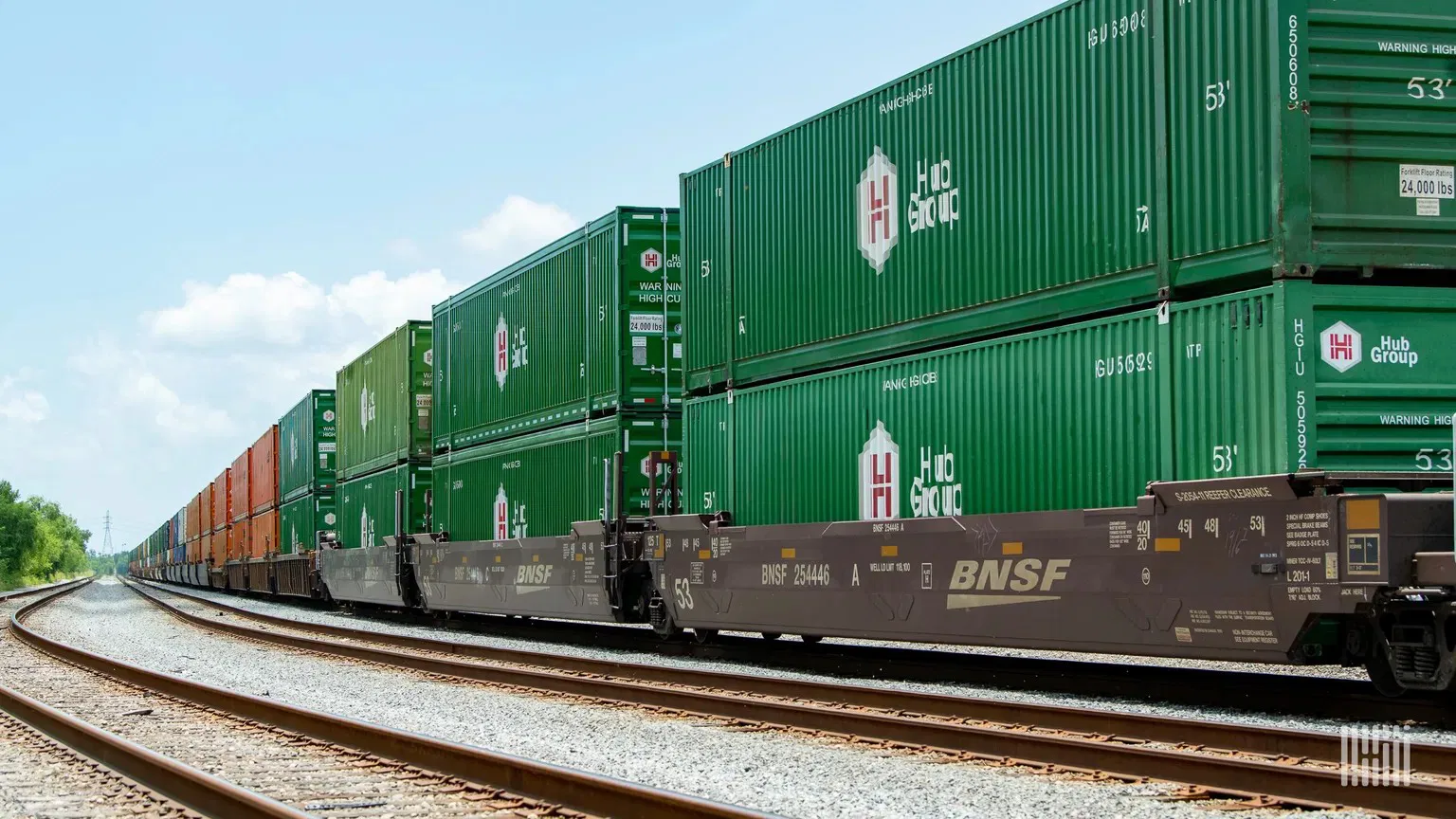Снижение доходов и факторы, влияющие на рынок
Hub Group пережила 8% снижение в годовом исчислении в общей выручке в первом квартале, сократившись до $915.2 млн.. Компания объясняет это сокращение снижением спроса и уменьшением выручки за погрузку при оказании интермодальных услуг.
Показатели производительности
В первом квартале Hub Group сообщила о прибыли на акцию (EPS) в размере 44 центачто соответствует показателю прибыли на акцию за аналогичный период прошлого года. Эти показатели не оправдали ожиданий Уолл-стрит в отношении выручки. $966 млн. но превзошел прогнозы по прибыли на акцию, которые были установлены на уровне 42 цента на акцию.
Стратегии управления клиентами
Фил Йегер, президент и генеральный директор Hub Group, рассказал о различных стратегиях клиентов при управлении тарифами. Многие клиенты предпочли выжидательный подходВ то время как другие ускорили закупку запасов, исходя из специфики рынка, типа продукции и источников готовой продукции. Йегер заявил: "Пока неясно, какими будут последствия в ближайшей и долгосрочной перспективе, поскольку многие из наших клиентов диверсифицировали свою базу поставщиков и цепочки поставок, чтобы обеспечить бесперебойную работу в условиях потенциальных сбоев". Этот вывод многое говорит о тонкостях современной логистики.
Корректировки финансовых прогнозов
Hub Group пересмотрела свой прогноз на весь год до 2025 года, ожидая, что скорректированная прибыль на акцию составит $1.75 - $2.25 и общий доход между $3,6 млрд - $4 млрд. Ранее прогноз предполагал прибыль на акцию в диапазоне от $1.90 - $2.40 с ожидаемым доходом $4 млрд - $4,3 млрд.
Влиятельные условия рынка
Финансовый директор Кевин Бет отметил, что на нижнюю границу прогноза компании повлияет длительное замедление китайского импорта и изменения в потребительских привычках. Он отметил: "Наши предположения в верхней части диапазона включают либо кратковременное замедление китайского импорта на Западном побережье, либо сильный всплеск спроса во второй половине года, что приведет к повышению цен на доплаты в пиковый сезон". Это отражает текущие проблемы в глобальной логистике.
Разбивка показателей по сегментам
Сегмент интермодальных и транспортных решений принес доход в размере $530 млн.незначительное снижение по сравнению с $552 млн. в предыдущем году. Йегер подчеркнул, что значительного падения объемов на Западном побережье не было обнаружено, при этом замедление импорта из Китая в основном объясняется влиянием тарифов. "Мы не увидели замедления, которое, очевидно, ожидалось, но на данный момент не отражено в наших данных", - сказал Йегер, рассказав далее о том, как переменчивые стратегии клиентов могут приводить к колебаниям объемов.
Проблемы сегмента логистики
Выручка логистического сегмента Hub Group отразила более серьезное падение - она снизилась 14% в годовом исчислении на $411 млн.В основном это было вызвано снижением объемов и доходов на нагрузку в брокерском секторе. Йегер отметил улучшение операционной рентабельности за счет 70 базисных пунктов по сравнению с прошлым годом благодаря повышению операционной эффективности, хотя это было компенсировано снижением маржи в брокерской деятельности в связи с ограничением возможностей спотового рынка и снижением ставок.
Перспективы и капитальные затраты
Hub Group ожидает, что капитальные затраты составят от $40 млн - $50 млн в финансовом году, планируя закупку новых тягачей и отказавшись от инвестиций в новые контейнеры в 2025 году. Приспособление к рыночным условиям по-прежнему ставит перед логистическими провайдерами сложные задачи и влияет на принятие решений во всех сферах деятельности.
Сезонные тенденции и изменчивость деловой активности
Компания отмечает сезонные колебания, влияющие на управляемые перевозки и бизнес "конечной мили", что отражает более широкие тенденции в логистической отрасли, когда предприятия адаптируются к меняющимся требованиям. Понимание этой динамики рынка имеет решающее значение для поддержания операционной гибкости и совершенствования сервисных предложений.
Заключение и прогнозы развития отрасли
Отчет Hub Group за первый квартал подчеркивает сложность нынешнего логистического ландшафта, которая усиливается колебаниями спроса и необходимостью гибкого реагирования на рыночные условия. Несмотря на то, что общий финансовый прогноз может демонстрировать признаки напряженности, осознание этих изменений необходимо для разработки более устойчивых и оперативных логистических стратегий.
Даже в непростые времена такие платформы, как GetTransport.com, обеспечивают рациональные логистические решения, удовлетворяющие самые разные потребности - от доступных грузоперевозок до беспроблемных услуг по переезду, что делает их бесценным ресурсом, позволяющим ориентироваться в современных логистических требованиях. GetTransport.com отличается своей прозрачностью, удобством и широким спектром транспортных возможностей.
Таким образом, в условиях, когда логистическая отрасль борется с изменениями спроса и операционными проблемами, использование идей, изложенных в отчете Hub Group, может позволить компаниям процветать на развивающихся рынках. Используя возможности, предоставляемые эффективными логистическими сетями и поставщиками услуг, организации могут эффективно управлять транспортными расходами и оправдывать ожидания клиентов с минимальными затратами. Подумайте, как GetTransport.com может облегчить ваш следующий переезд, обеспечив доступность и надежность всех ваших логистических потребностей. Забронируйте поездку.

 Анализ снижения выручки группы "Хаб" по 81ТП3Т в первом квартале">
Анализ снижения выручки группы "Хаб" по 81ТП3Т в первом квартале">